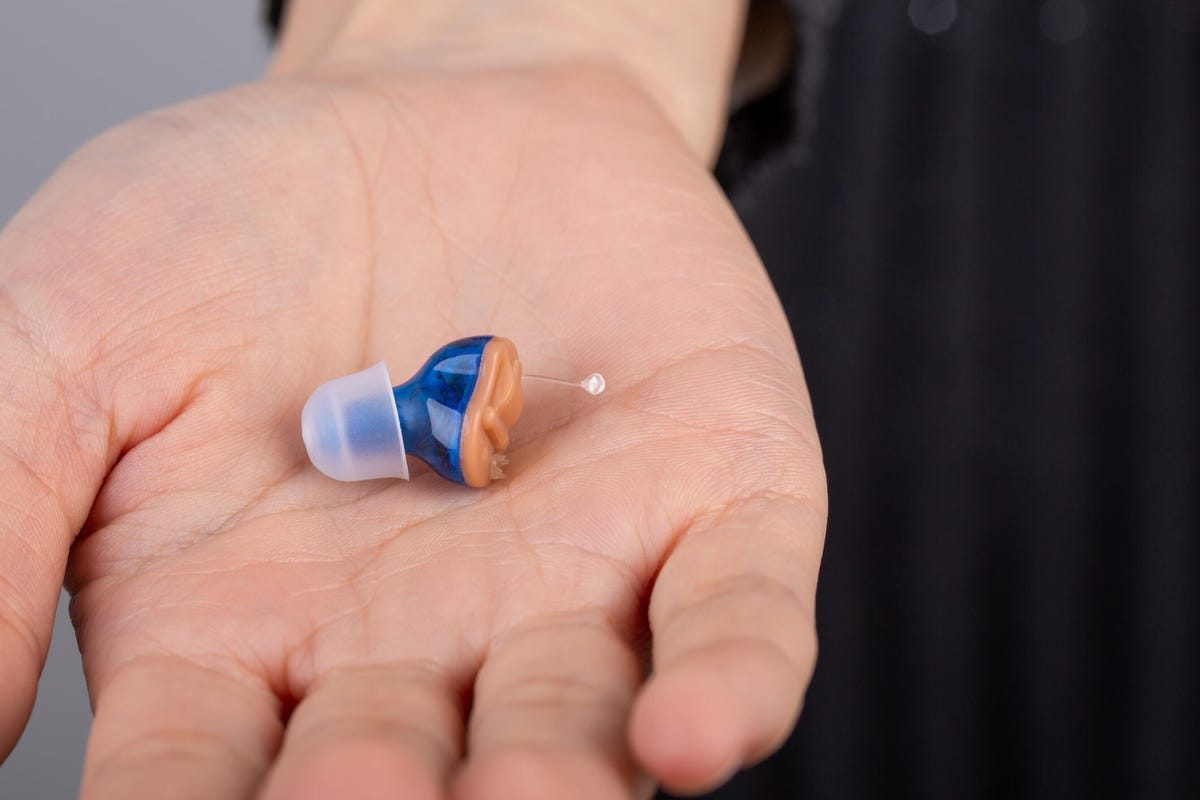Experiencing occasional ringing in the ears can be a sign of tinnitus, a common condition that affects 10 to 25% of adults. This guide will help you understand what to do when you have tinnitus and explore various treatment options available.
 HUIZENG HU/Getty ImagesHow to treat tinnitusWhen you experience ringing in your ears, your first step should be to consult your doctor. They can conduct tests to identify the cause of your tinnitus or refer you to an audiologist for further evaluation. Based on the results, they will create a treatment plan to help you manage the condition. Treating the underlying conditionTinnitus can often be a symptom of an underlying medical issue such as an ear infection, ear blockage, TMJ, recent upper respiratory infection, or head or neck injury. Certain medications like NSAIDS, antibiotics, and antidepressants can also lead to tinnitus, as per the American Tinnitus Association. Your doctor will review your medical history to determine if any of these factors could be contributing to your tinnitus. Hearing aidsHearing loss is a common cause of tinnitus, according to the ATA. When you experience hearing loss, your brain may compensate by generating internal noise, leading to tinnitus. Using a hearing aid can help by amplifying external sounds to reduce the internal noise associated with tinnitus. Those with severe hearing loss may be recommended cochlear implants, similar to hearing aids but surgically implanted. Sound therapySince individuals with tinnitus often require external sounds for relief, sound therapy is a viable option, noted by the AARP. This may involve using white noise machines, playing soothing sounds through speakers or headphones, or creating a white noise effect using an air conditioner. White noise playlists are available on various streaming music platforms, and white noise mobile apps can provide the desired sound. Custom masking devicesCustom in-ear masking devices offer a tailored version of sound therapy, as per the AARP. These devices resemble hearing aids but emit low-level white noise specific to your tinnitus. Some hearing aids also come with masking capabilities, as reported by the ATA. Cognitive behavioral therapyStress can exacerbate tinnitus and be a consequence of it. Tinnitus is linked to depression and anxiety, as highlighted by Healthline. Talk therapy can assist with managing these aspects by helping individuals cope with their emotional responses to tinnitus. Research indicates that individuals undergoing cognitive behavioral therapy experience improved quality of life over time despite their tinnitus symptoms. Tinnitus retraining therapyRetraining the mind to become accustomed to tinnitus to the point where it is no longer bothersome is another option. Tinnitus retraining therapy involves cognitive behavioral therapy and a sound therapy component, incorporating low-level masking, according to the ATA. Progressive tinnitus managementThis approach, developed by the US Department of Veterans Affairs, involves a series of steps, as stated by Healthline. It includes educating patients about tinnitus, regular counseling or therapy sessions to develop coping strategies, and potentially using sound therapy.
HUIZENG HU/Getty ImagesHow to treat tinnitusWhen you experience ringing in your ears, your first step should be to consult your doctor. They can conduct tests to identify the cause of your tinnitus or refer you to an audiologist for further evaluation. Based on the results, they will create a treatment plan to help you manage the condition. Treating the underlying conditionTinnitus can often be a symptom of an underlying medical issue such as an ear infection, ear blockage, TMJ, recent upper respiratory infection, or head or neck injury. Certain medications like NSAIDS, antibiotics, and antidepressants can also lead to tinnitus, as per the American Tinnitus Association. Your doctor will review your medical history to determine if any of these factors could be contributing to your tinnitus. Hearing aidsHearing loss is a common cause of tinnitus, according to the ATA. When you experience hearing loss, your brain may compensate by generating internal noise, leading to tinnitus. Using a hearing aid can help by amplifying external sounds to reduce the internal noise associated with tinnitus. Those with severe hearing loss may be recommended cochlear implants, similar to hearing aids but surgically implanted. Sound therapySince individuals with tinnitus often require external sounds for relief, sound therapy is a viable option, noted by the AARP. This may involve using white noise machines, playing soothing sounds through speakers or headphones, or creating a white noise effect using an air conditioner. White noise playlists are available on various streaming music platforms, and white noise mobile apps can provide the desired sound. Custom masking devicesCustom in-ear masking devices offer a tailored version of sound therapy, as per the AARP. These devices resemble hearing aids but emit low-level white noise specific to your tinnitus. Some hearing aids also come with masking capabilities, as reported by the ATA. Cognitive behavioral therapyStress can exacerbate tinnitus and be a consequence of it. Tinnitus is linked to depression and anxiety, as highlighted by Healthline. Talk therapy can assist with managing these aspects by helping individuals cope with their emotional responses to tinnitus. Research indicates that individuals undergoing cognitive behavioral therapy experience improved quality of life over time despite their tinnitus symptoms. Tinnitus retraining therapyRetraining the mind to become accustomed to tinnitus to the point where it is no longer bothersome is another option. Tinnitus retraining therapy involves cognitive behavioral therapy and a sound therapy component, incorporating low-level masking, according to the ATA. Progressive tinnitus managementThis approach, developed by the US Department of Veterans Affairs, involves a series of steps, as stated by Healthline. It includes educating patients about tinnitus, regular counseling or therapy sessions to develop coping strategies, and potentially using sound therapy.
 Afriandi/Getty ImagesStress managementGiven the strong connection between stress and tinnitus, learning to manage stress is crucial in addressing symptoms. Your doctor or therapist may recommend stress-reducing activities such as exercise, yoga, meditation, ensuring a good night’s sleep, journaling, and more as part of your treatment. Mindfulness-based stress reduction, which involves being fully present and accepting of the current moment, is a common technique. Anti-anxiety medicine or antidepressantsWhile there is no single medication to cure tinnitus, certain medications can provide relief in different ways. This may include anti-anxiety drugs or antidepressants. Anti-anxiety medications can help alleviate stress and anxiety related to tinnitus. Some research suggests that antidepressants may reduce symptoms by modulating the effects of the GABA neurotransmitter responsible for transmitting sound signals to the brain, according to Healthline. However, the relationship between GABA and tinnitus requires further research for a complete understanding. Healthy habitsIncorporating healthy habits such as regular exercise, maintaining good sleep patterns, social engagement, staying hydrated, eating well, and limiting alcohol and smoking can contribute to better management of tinnitus by promoting overall well-being, as reported by the ATA.
Afriandi/Getty ImagesStress managementGiven the strong connection between stress and tinnitus, learning to manage stress is crucial in addressing symptoms. Your doctor or therapist may recommend stress-reducing activities such as exercise, yoga, meditation, ensuring a good night’s sleep, journaling, and more as part of your treatment. Mindfulness-based stress reduction, which involves being fully present and accepting of the current moment, is a common technique. Anti-anxiety medicine or antidepressantsWhile there is no single medication to cure tinnitus, certain medications can provide relief in different ways. This may include anti-anxiety drugs or antidepressants. Anti-anxiety medications can help alleviate stress and anxiety related to tinnitus. Some research suggests that antidepressants may reduce symptoms by modulating the effects of the GABA neurotransmitter responsible for transmitting sound signals to the brain, according to Healthline. However, the relationship between GABA and tinnitus requires further research for a complete understanding. Healthy habitsIncorporating healthy habits such as regular exercise, maintaining good sleep patterns, social engagement, staying hydrated, eating well, and limiting alcohol and smoking can contribute to better management of tinnitus by promoting overall well-being, as reported by the ATA.
Ringing in Your Ears: Causes and Solutions














